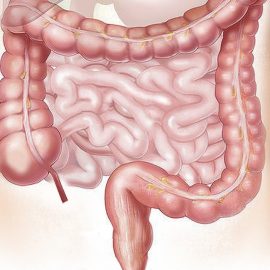
Are you looking for natural anti-aging strategies? How can you combat the effects of aging without medication?
In a society where people are looking to anti-aging medications and procedures to keep them young, natural anti-aging strategies are often overlooked. According to Nicklas Brendborg in Jellyfish Age Backwards, these lifestyle changes can extend your lifespan.
Continue reading to learn how to extend your years naturally.
Lifestyle Strategies to Combat Aging
In his book, Brendborg suggests natural anti-aging methods for slowing the aging process. Brendborg emphasizes that aging is complex and involves many different mechanisms, so it’s unlikely that any one method will be enough to combat it. Therefore, the most effective approach to anti-aging is to use multiple different strategies to treat the symptoms of aging and keep the body strong for as long as possible.
The first strategies the author presents are lifestyle changes you can make to extend your years of life and health. The methods we’ll discuss in this section fall into these categories:
- Dietary restrictions
- Using healthy stressors (such as exercise) to strengthen the body
Dietary Restrictions
The first lifestyle strategies that Brendborg discusses have to do with eating habits. He says that you can dramatically improve your health and lifespan by strictly limiting either how much you eat or how often you eat.
Strategy #1: Calorie Restriction
Brendborg begins by discussing calorie restriction: dramatically reducing how much you eat.
He says that, based on various studies and observations, people who have cut their calorie intake by anywhere from around 10-25%—while still making sure to get all the nutrients they need—have shown remarkable health improvements. Some of the benefits include losing weight, reduced blood pressure, and improved immune responses.
However, by their very nature, such studies take a long time to conduct. Therefore, it’s too soon to say for sure whether calorie restriction ultimately leads to a longer lifespan in humans.
While there isn’t yet a consensus about whether calorie restriction makes you live longer, Brendborg says that researchers do have theories about the health improvements they’ve recorded so far. Calorie restriction appears to trigger various cellular maintenance mechanisms, most notably autophagy.
Autophagy, which literally means “self-eating,” is the body’s way of breaking down damaged or mutated cells and recycling their components. This is not just an efficient use of resources, it’s also a way for the body to repair itself. This cellular recycling process is sort of like repairing a machine by swapping out damaged components for new ones. Although autophagy happens naturally throughout your life, it declines as you get older. Promoting autophagy through calorie restriction (or other methods, as we’ll discuss) seems to counteract this decline, which may help you maintain healthier cells into old age.
Strategy #2: Intermittent Fasting
Brendborg notes that severe calorie restriction is an unrealistic approach for most people—they’d find that any benefits to their health and lifespan aren’t worth the discomfort of constant hunger. However, intermittent fasting (IF) may offer similar benefits while being much more sustainable for the average person.
IF is a dietary strategy that limits when you eat, rather than how much you eat. For example, common methods include setting an eight-hour window each day during which you’re allowed to eat (say, between 9:00 am and 5:00 pm), and alternate-day fasting: eating normally one day, then eating little or nothing the next day, and repeating that pattern indefinitely.
According to Brendborg, recent research has suggested that the life-extending benefits of calorie restriction may actually be due to longer periods of fasting between meals, rather than eating fewer calories overall. In other words, autophagy and other maintenance processes trigger after you go for a long enough time without eating, even if you still eat the same amount of food overall.
Healthy Stressors
The second lifestyle strategies Brendborg shares have to do with healthy, positive forms of stress—mild hardships that strengthen the body instead of weakening it. In biology this is called hormesis: a phenomenon wherein small amounts of a stressor can be beneficial, while larger amounts of that same stressor are harmful or even fatal.
To give an example, many medicines follow this pattern. Taking the recommended dose of, say, a cough medicine will produce the intended effects (clearing up congestion and relieving your cough), but taking too much could make you seriously sick.
Strategy #1: Exercise
The most obvious form of healthy stress is exercise, and the fact that exercise helps you live longer is hardly a new discovery. However, Brendborg emphasizes that the health and longevity benefits of exercise seem to have no hard limits. This means that, regardless of your age or your fitness level, working out will continue to boost your health and lifespan.
Brendborg explains that more exercise is better as a general rule, but it’s crucial to remain aware of how your body feels and performs. Remember: Exercise is a form of stress, meaning it actually hurts you. The health benefits of exercise come from the recovery period, when your body rebuilds itself to be stronger than it was before. And while the benefits of exercise have no limits, there is a limit to how much your body can handle. If you overwork yourself, you’ll reach a point where the damage outweighs the benefits—for example, you might tear a muscle by trying to lift weights that are too heavy for you. So, if you’re in pain or find that you seem to be getting weaker instead of stronger, it’s probably time to rest and recover.
Strategy #2: Plant Compounds
Brendborg says that another way to benefit from hormesis is to take advantage of the natural defense mechanisms found in many edible plants. Much like the benefits of exercising, the health benefits of fruits and vegetables have been common knowledge for a long time, but most people assume these plants are valuable because they’re nutritious.
However, some scientists (including Brendborg) think hormesis also plays a role in their value. For example, pineapples contain an enzyme that breaks down proteins, which is why your mouth might feel strange after eating it—the enzyme isn’t dangerous enough to harm humans, but it may induce hormesis. Similarly, most fruits and vegetables contain compounds called polyphenols that are mildly toxic to humans; the relatively small amounts you ingest won’t hurt you in any noticeable way, but the author says that it’s still enough to trigger hormesis.
A Warning: Other Kinds of Hormesis Are Too Risky
Brendborg acknowledges that exercise and eating your vegetables might not be new or exciting ways to extend your life, but they’re effective and safe. He then discusses a couple of other possible ways to become stronger and more resilient through hormesis—however, he insists that these are too dangerous to try. He explains that hormesis is dangerous by nature, and it’s very easy to do more harm than good. Additionally, there’s no ethical way to conduct studies that involve intentionally hurting people. Therefore, the methods he discusses have never been rigorously tested for safety or effectiveness in humans.
With that said, two other possible ways to induce hormesis include:
1) Poisons: Brendborg discusses studies performed on roundworms, where researchers found that low doses of arsenic (a deadly poison) and paraquat (a powerful herbicide) actually extended the worms’ lifespans. The test subjects also became more resilient against other toxic substances. However, higher doses of those poisons killed the roundworms, as expected.
2) Radiation: Studies of radiation exposure, such as accidental exposures among nuclear plant workers, have shown that low doses of radiation can produce unexpected health benefits. Some of these benefits included lower cancer rates and longer average lifespans among those exposed.






